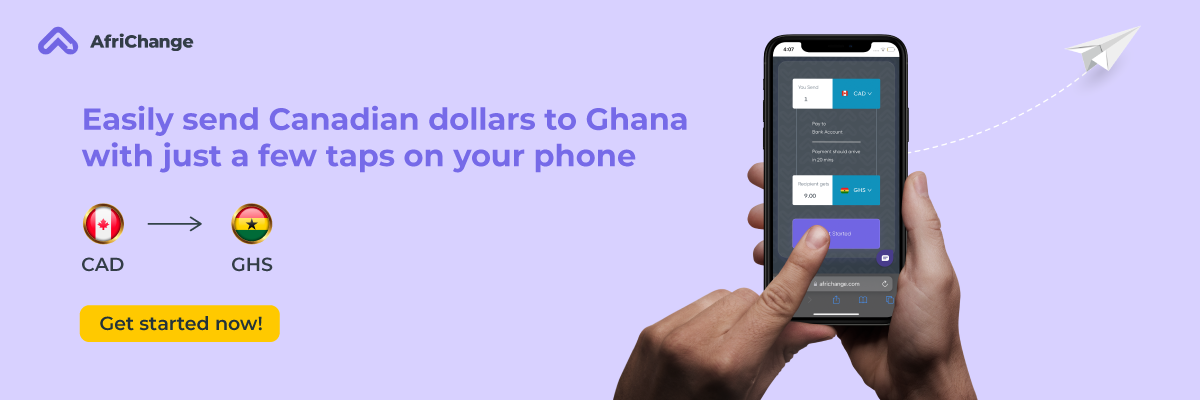Ensuring Safe Money Transfers. Easy tips for Securing your Online Transactions

In today's digital era, millions of people pay for goods or services through online transfers, or conveniently send and receive money online with just a few clicks. Through this, they are able to effortlessly transfer money across borders, pay bills, and make purchases etc. However, there is a significant drawback: a heightened risk of falling victim to internet scammers, fraudsters, or even unintentionally sending funds to the wrong accounts.

To overcome these challenges, we find ourselves constantly having to navigate a low-trust territory with banks and non-bank organizations. And update our knowledge on fraud tactics employed by cybercriminals. Thousands of monthly Google searches relating to secure methods of sending and receiving money are evidences of this.

Similarly, service providers are faced with the responsibility of implementing active measures to ensure safety and protection of users' funds. They must adhere to Anti-Money Laundering (AML) policies and other regulations governing money transfers. For these service providers, the circadian task of addressing questions and providing initiatives that alleviate customer concerns and ensure smooth business operations is sacrosanct. And questions like: Is my money secure? Are your systems protected? Why is my transaction pending? What measures do you have in place to combat fraud? What happens if my recipient doesn't receive the funds? Are you registered and licensed with regulatory bodies? are crucial for fostering customer trust, loyalty, retention, and growth.

In this article, we will provide valuable insights on the safety of money transfers, and some processes usually implemented to safeguard your funds. Our goal is to assist you in preventing fraud and other negative experiences associated with money transfers.
How Safe is an Online Transfer?
Online Money transfers are generally safe and secure ways of sending or receiving money anywhere in the world provided you use a reliable, regulated and trusted service provider. Also, exercising caution when entering necessary sender and receiver details is pertinent. While these transfers are typically fast and trouble-free, it's important to remember that like any financial transaction, they can attract the attention of cybercriminals and fraudsters which can result in individuals losing substantial amounts of money due to money transfer fraud. In some countries like Canada, online transactions are closely monitored by the Financial Transactions and Report Analysis Centre (FINTRAC) which investigates money laundering and the Financial Consumer Agency of Canada (FCAC).
Steps to ensure that your online money transfer is safe
In an increasingly interconnected world, to ensure that your online money transfer is safe and secure, consider these options before completing a transaction.

Use a reliable and trustworthy bank or service provider
A principal step in ensuring the safety of your money transfer is choosing a reliable transfer provider. These service providers often provide a better alternative to banks because of their low fees, competitive rates and faster transactions, so it is wise to do your own thorough research to identify trusted institutions with a commendable reputation, robust security measures and fair-to-positive customer reviews. Oftentimes these popular non-bank providers include payment platforms like Paypal and dedicated money transfer services like Africhange. Also, endeavor to know their official websites, contact mail addresses and verifiable social media handles.

Ensure that your service provider is registered and properly licensed
Another fundamental step in ensuring the safety of your money transfers is to verify that your service provider is properly licensed and registered to perform such financial service. This is because licensed service providers usually have standard security features like encryption technology, two-factor level authentication, secure socket layers (SSL), data protection and privacy features amongst others. This helps to provide a strong security network for your money transfers. Also check their compliance, anti-fraud and Anti-money laundering (AML) policies.

Safeguard your personal information
While financial institutions and platforms might implement state of the art security procedures, a key way of ensuring your money transfers are safe is by practicing user best practices. When initiating a money transfer, exhibit caution and avoid entering sensitive and personal information like bank details, credit card details, passwords, security answers over unsecured channels like a public WiFi. Also ensure that the website’s URL starts with https:// and it has a padlock icon in the address bar.
Double check your receiver’s information
Especially when initiating international remittances, it is paramount to go over the details of your recipient multiple times to ensure that you have the correct information before initiating the transaction. From the correct account type to the account number, including details like security questions and answers, etc. These must be entered correctly to avoid errors. Seemingly small errors can lead to the money being sent to a wrong account and can be difficult to rectify. In situations where a wrong detail or information is used, contact your service provider immediately.

Use strong passwords and security questions for your accounts
Using a unique, strong and complex password protects you from being hacked easily and security questions provide your funds with an extra layer of security. A strong password is usually alphanumeric. Also, avoid using the same password across multiple platforms and consider storing your login details with a password manager.

Enable two factor level authentication
To further protect money transfers and as an extra level of security, most financial service providers provide 2FA . In such cases it is advisable to set up 2FA as it will request for an extra level of verification, usually a code sent to a registered device or an authenticator, in hand with your password. This method significantly reduces the risk of unauthorized access as login credentials are sometimes not enough.

Beware of phishing emails, scam links and messages
Avoid suspicious emails, messages, calls or requests for your personal financial information. Legitimate financial institutions will never request sensitive information via email or texts. Double check all sender email addresses and beware of suspicious address names like sexyblaze, egyptian king etc., also do not download unknown email attachments or open unknown links.
Conclusion
Finally, while no system can hundred percent be entirely risk-free, online money transfers are largely becoming secure due to updated and stringent security measures by financial services providers like Africhange and others. Inculcating good personal practices like meticulousness in carrying out financial transfers, not login to multiple devices at a time, monitoring your transfer history, expanding your knowledge on new security practises, regularly updating your applications and software to protect against vulnerabilities, and even getting insurance or buyer protection services are not out of style and can significantly contribute to securing your online transfers.
To send money online with a safe and secure service in Canada, Mexico, Nigeria, and other parts of the world, click Here.

